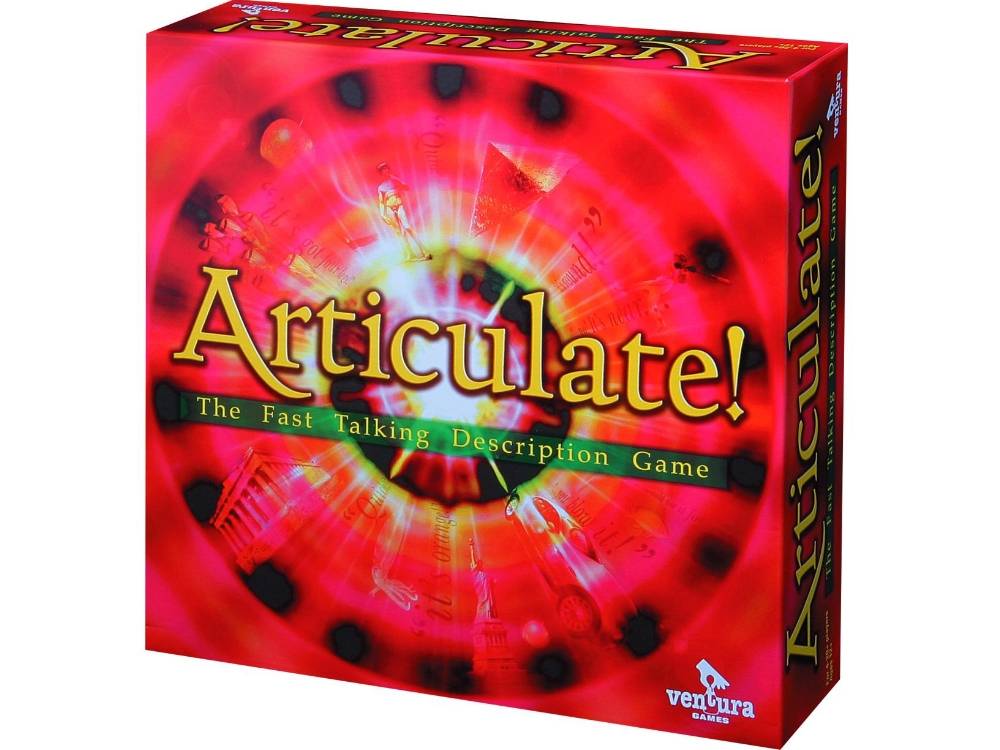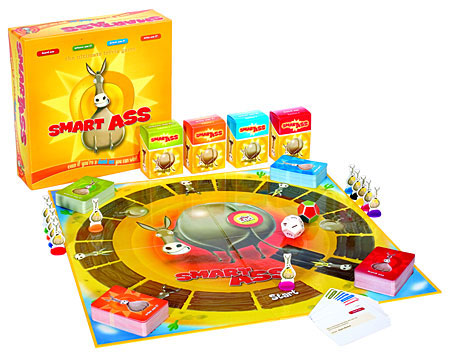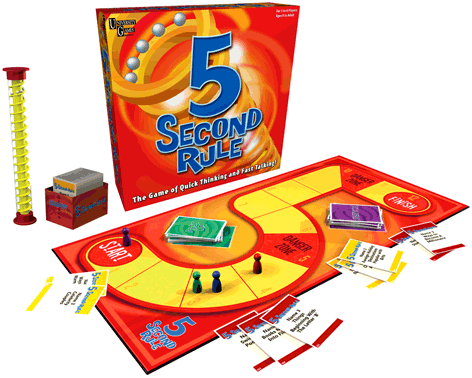Board games as an assessment tool in the classroom
Like most people I absolutely love a good board game. Many a Christmas has been spent playing, enjoying and reveling in entertaining games with close friends and family. They never seem to disappoint, they always bring the family together and are great for improving team work and collaboration skills.
It has made me think about how could they be integrated into the classroom???
The three board games that I am going to talk about all have fantastic potential in the classroom. Although they are aimed at adults the rules for the games can be easily adapted by teachers to fit in with most curriculum areas.
 Articulate - This is my favourite board game! The aim of the game is to describe as many words as you can in 30 seconds. You have one pass and there are rules as to how you can describe
Articulate - This is my favourite board game! The aim of the game is to describe as many words as you can in 30 seconds. You have one pass and there are rules as to how you can describe
 The next game is Smart Ass! Again a thoroughly entertaining game, where taking risks can either win or lose the game! Players roll a coloured dice to decide on the category of what am I? where am I? or Who am I?
The next game is Smart Ass! Again a thoroughly entertaining game, where taking risks can either win or lose the game! Players roll a coloured dice to decide on the category of what am I? where am I? or Who am I?



 The last board game which has some great potential in the classroom is 5 Second Rule. The aim of the game is simple, name 3 examples of a particular subject in 5 seconds, sounds easy but is a lot harder than you think. This can be an easily adaptable game for the classroom. Name 3 adjectives to describe this picture, name three adverbs for running, name 3 multiples of 5, name 3 different countries, 3 wives of Henry VIII. Lots of different topics and subjects can be tested in this engaging and enjoyable game.
The last board game which has some great potential in the classroom is 5 Second Rule. The aim of the game is simple, name 3 examples of a particular subject in 5 seconds, sounds easy but is a lot harder than you think. This can be an easily adaptable game for the classroom. Name 3 adjectives to describe this picture, name three adverbs for running, name 3 multiples of 5, name 3 different countries, 3 wives of Henry VIII. Lots of different topics and subjects can be tested in this engaging and enjoyable game.
It has made me think about how could they be integrated into the classroom???
The three board games that I am going to talk about all have fantastic potential in the classroom. Although they are aimed at adults the rules for the games can be easily adapted by teachers to fit in with most curriculum areas.
 Articulate - This is my favourite board game! The aim of the game is to describe as many words as you can in 30 seconds. You have one pass and there are rules as to how you can describe
Articulate - This is my favourite board game! The aim of the game is to describe as many words as you can in 30 seconds. You have one pass and there are rules as to how you can describeDESCRIPTION RULES
When describing you MUST NOT:- Say what letter any word starts with.
- Say how many letter any given word has.
- Say the actual word
- Say a word which includes the word. For example if the word is "post" you may not say "postage" or "postman"; for "swim" you can not say "swimmer" etc.
- Use "rhymes with" or "sounds like" kind of clues.
- Mouth The words.
- Choose to PASS and not play a card - BUT ONLY ONCE each turn.
- Make body gestures
- Act
- Mime
So how can it be used in class??? Sitting the children in groups of four and print off key vocabulary at the end of a unit of work. Let the children play the game by taking it in turns to describe as many words in 30seconds with them rewarding themselves a point for every correctly guessed answer and a point to the person who correctly guessed the word. The teacher can use it to assess how well they can describe key words that have been covered over the previous weeks. This could be used in science, history, geography even maths or English. If you want the children to focus on adjectives print some examples of and see how well the children can describe them to each other, I guarantee they will remember the adjectives in their next writing lesson.
 The next game is Smart Ass! Again a thoroughly entertaining game, where taking risks can either win or lose the game! Players roll a coloured dice to decide on the category of what am I? where am I? or Who am I?
The next game is Smart Ass! Again a thoroughly entertaining game, where taking risks can either win or lose the game! Players roll a coloured dice to decide on the category of what am I? where am I? or Who am I?
Clues are then read starting with the most obscure gradually leading to easier hints. Players can guess at any time but only have one guess. If they jump in too early they can be out of the game but wait too long and others may sneak in and win. Here are some examples of the type of cards in the game:


Again this would be great way to engage children and assess their understanding of certain topics. If you were looking at classification of animals in science or Romans in history, teachers could read clues and children could use their knowledge from lessons to make an estimated guess. It would be a great approach in numeracy again teachers could read our clues such as - it is a multiple of 2, it is a 2 digit number, it has 3 tens. For HA children there is no reason why they can't make their own cards which again would be a great way for them to show their understanding of a topic. They could then share their cards with the rest of the class and see who could guess their answers.
 The last board game which has some great potential in the classroom is 5 Second Rule. The aim of the game is simple, name 3 examples of a particular subject in 5 seconds, sounds easy but is a lot harder than you think. This can be an easily adaptable game for the classroom. Name 3 adjectives to describe this picture, name three adverbs for running, name 3 multiples of 5, name 3 different countries, 3 wives of Henry VIII. Lots of different topics and subjects can be tested in this engaging and enjoyable game.
The last board game which has some great potential in the classroom is 5 Second Rule. The aim of the game is simple, name 3 examples of a particular subject in 5 seconds, sounds easy but is a lot harder than you think. This can be an easily adaptable game for the classroom. Name 3 adjectives to describe this picture, name three adverbs for running, name 3 multiples of 5, name 3 different countries, 3 wives of Henry VIII. Lots of different topics and subjects can be tested in this engaging and enjoyable game.
Having used these games within lessons they never fail to get the children engaged and enjoying the lesson. They work well together and it improves the children's quick thinking skills. Obviously the teacher can easily adapt these games to fit in anyway they choose and can be easily differentiated for all abilities. I am in no way suggesting that you buy these games for the classroom, however making your own versions can bring some great practical aspects to your lessons.

Comments
Post a Comment